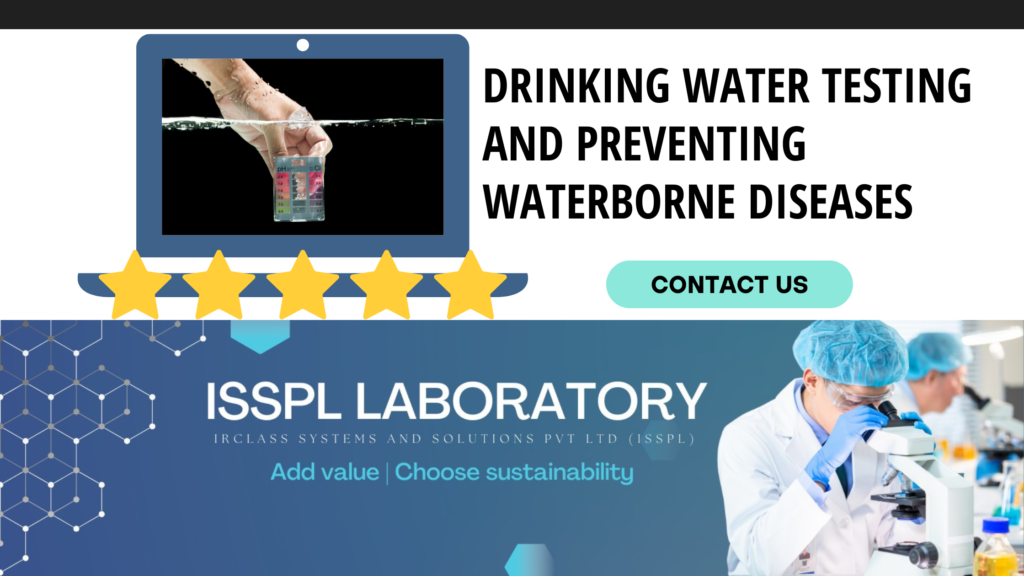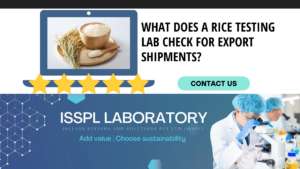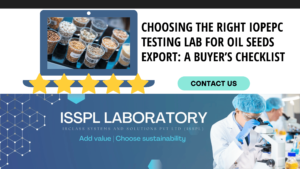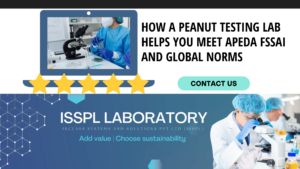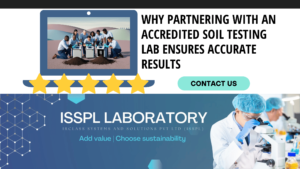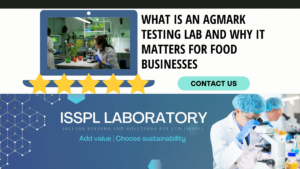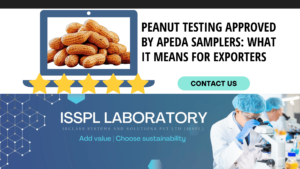An Overview by Team ISSPL - Analytical Testing Laboratory in India
ToggleWater is a very important and vital part of our daily lives only when it gets contaminated, it becomes a serious health hazard. Despite the fact that it is established that traditional waterborne diseases still remain an international problem, particularly in places that do not have access to clean drinking water.
Testing drinking water is a critical step to reducing these risks, and protecting human consumption of water and preventing disease outbreaks.
In this article we will discuss the dangers of waterborne diseases, the need for testing in ensuring the safety of public health, the pathogen tests in the water and how IRCLASS Systems and Solutions Pvt Ltd (ISSPL) is at the forefront in supplying safe and reliable water testing solutions.
Waterborne Disease Risks
The vector of transmission of pathogenic microorganisms causing waterborne diseases is contaminated water. These diseases affect millions of people every year, especially in developing countries where water quality standards may be less stringent, or not enforced. Drinking water can become contaminated with bacteria, viruses, protozoa and other pathogens that can cause serious health consequences.
Some common waterborne diseases include:
- Cholera: Cholera, spread by water contaminated with human feces, is caused by Vibrio cholerae due to its effects of causing severe diarrhea and resulting in dehydration.
- Typhoid Fever: Typhoid fever is often transmitted by drinking water contaminated with sewage.
- Hepatitis A: It is spread by drinking water contaminated with the infected people.
- Cryptosporidiosis and Giardiasis: Protozoan infections are common to inadequately treated or untreated water.
- Dysentery: The Shigella species cause bacterial dysentery, a very serious intestinal problem, especially in the absence of good sanitation.
Moreover, these diseases can have serious consequences on vulnerable populations such as children, the elderly and immunocompromised people. In many cases, the problem is as simple as the fact that drinking water just isn’t tested or treated enough.
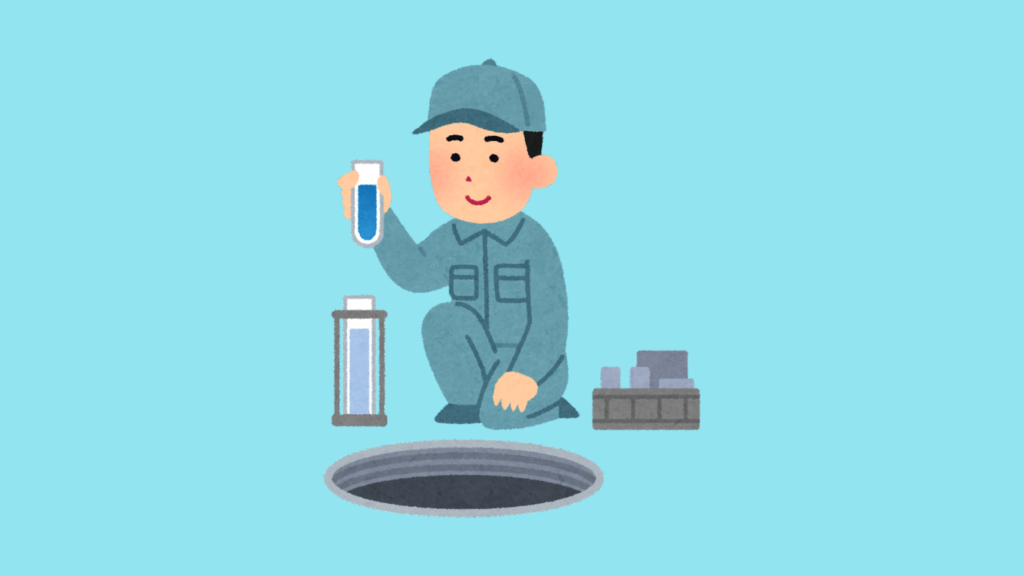
How does drinking water testing help prevent disease outbreaks?
Drinking water testing is a powerful preventive measure, enabling a detection of possible contaminants while being able to harm your health. If authorities and individuals test water regularly from sources and supply systems they can identify pathogens, chemicals and other harmful things so that corrective action is taken rapidly.
Key Ways Drinking Water Testing Prevents Disease:
- Early Detection of Contaminants
Drinking water testing identifies harmful microorganisms and chemicals in the water. The earlier we detect it, the more we can do to fix it, e.g. improve filtration, disinfection and treatment methods.
- Compliance with Regulatory Standards
In this case, there are regulatory bodies like Bureau of Indian Standards (BIS) and World Health Organization (WHO) which define how good drinking water is supposed to be. Compliance with these standards is enabled by regular testing which lowers the chances an outbreak can occur.
- Safe Treatment Processes
Water testing after treatment tests whether the treatment or processes (i.e. chlorination, UV disinfection or reverse osmosis) remove the pathogens and contaminants.
- Avoiding Long Term Health Problems
Testing helps prevent acute diseases, but also helps mitigate chronic exposure to toxic substances (heavy metals — lead, arsenic — and pesticides) which lead to chronic diseases.
- Building Consumer Confidence
Municipal water suppliers and businesses stay on top of regular testing and keep the public calm and the company’s reputation afloat by assuring consumers that the water they drink is safe.
Pathogens in Water: Key Tests
To ensure the safety of drinking water, specific tests are performed to detect microbial and chemical contaminants. The purpose of these tests is to find known pathogens and pollutants that cause waterborne disease. The following are some of the key tests:
Bacteriological Testing
- Detects bacteria including E. coli, Salmonella, or Vibrio cholerae.
- Bacterial infections are commonly caused by fecal contamination, and these tests are important for detecting this.
Viral Testing
- It can pick up viruses such as Hepatitis A and norovirus.
- Using advanced techniques such as Polymerase Chain Reaction, (PCR) these pathogens can be identified with high accuracy.
Parasitic Testing
- It looks for Giardia lamblia and Cryptosporidium parvum protozoa.
- They are commonly resistant to conventional chlorine treatment and testing is necessary.
Chemical Testing
- Tests for heavy metals, nitrates and pesticides that may have acute and long term health consequences.
- For example, high nitrate levels can cause methemoglobinemia (blue baby syndrome) in infants.
Organoleptic and physical testing was performed.
- It can measure pH, turbidity and taste.
- These tests don’t actually detect pathogens, but they can be used to indicate water quality and what might be in the water.
Biological Oxygen Demand (BOD) and Chemical Oxygen Demand (COD)
- They are intended to determine the organic pollution level in water, i.e. the possible growth of microbes.
All of these tests are vital in creating a total picture of water security and directing remediation endeavors.
ISSPL Testing Lab Can Help
IRCLASS Systems and Solutions Pvt Ltd (ISSPL) has become a trusted water testing authority. ISSPL has state of the art facilities, advanced technology and an experienced team of scientists to provide reliable and accurate testing for different water types such as drinking water.
Why do you need to choose ISSPL for drinking water testing?
- Testing Capabilities
ISSPL carries out a large number of tests – from microbial and chemical analysis to heavy metal detection and pesticide residue analysis. It takes a holistic approach to water quality assessment.
- Accredited Laboratory
The ISSPL laboratory is accredited to multiple accreditations and adheres to international standards, guaranteeing highest quality and reliability of test results.
- Advanced Technology
ISSPL is equipped with cutting edge instruments like LC MS/MS, ICP-MS, GC MS/MS and HPLC to do high precision tests to detect even trace levels of contaminants.
- Expertise Across Industries
Clients from across industries such as pharmaceuticals, construction and healthcare are served by ISSPL, ensuring specialized testing for each sector.
- Regulatory Compliance Support
With expert guidance, the laboratory assists organizations in meeting regulatory requirements for water quality through the understanding of complex standards.
- Faster Turnaround Times
Being Pan India and having efficient sampling teams, ISSPL ensures timely collection, testing and reporting of results which is important during outbreaks or emergencies.
Services for Drinking Water Testing
- Testing as per BIS standards (IS 10500:We use the 2012) for drinking water quality.
- To test for harmful bacteria, viruses and protozoa, comprehensive microbial testing.
- Testing for chemical contaminants such as heavy metals, pesticides and nitrates.
- To provide tailored testing solutions for use in packaged drinking water, industrial water use or community water supply.
- Sample collection and reporting is performed.
ISSPL provides end to end services from sample collection to detailed reporting for its clients. The reports are easy to understand and include actionable recommendations if any issues are found.
Conclusion
Testing of drinking water is indispensable for public health and prevention of water borne diseases. With urbanization and industrialization affecting water quality more than ever before, regular testing is now more important than ever. Drinking water testing helps protect communities, reduce healthcare costs and ensure the sustainable use of water resources, by identifying and mitigating risks early.
In this field, IRCLASS Systems and Solutions Pvt Ltd (ISSPL) is a beacon of excellence providing state of the art testing services to all. ISSPL is focused on quality, accuracy, and regulatory compliance to enable businesses, municipalities and individuals to protect their water supplies and promote a healthier society.
